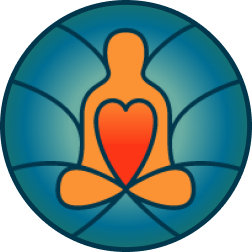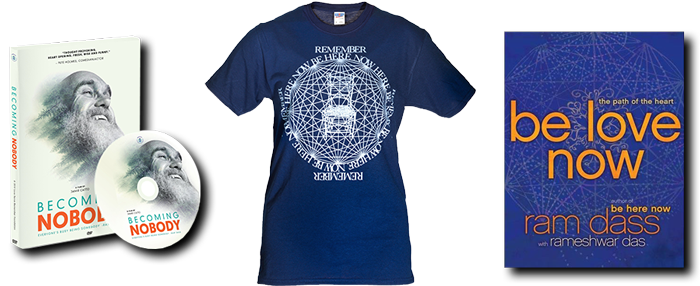“If you fall into poverty, live that way without grumbling – then your poverty will not burden you. Likewise, if you are rich, live with your riches. All this is the functioning of Buddha-nature. In short, Buddha-nature has the quality of infinite adaptability.”
— Philip Kapleau (The Three Pillars of Zen)
Philip Kapleau was one of the founding fathers of American Zen. He made it his life’s work to transplant Zen Buddhism into American soil, bridging the gap between theory and practice and making Zen Buddhism accessible to all.
After a successful career as a businessman, Philip Kapleau spent 13 years undergoing Zen training in Japan under three Zen masters before being ordained by Hakuun Yasutani-roshi in 1965 and given permission by him to teach. In 1966 he published The Three Pillars of Zen, the first book to explain the practice of Zen to Westerners. Still in print today, Three Pillars has become a Zen classic and has been translated into 12 languages. Shortly after the publication of Three Pillars, Roshi Kapleau came to Rochester to found the Zen Center.
Roshi Kapleau died in May, 2004, at the age of 91.
Americans and Enlightenment
When it comes to East-West cultural hurdles, probably nothing about Zen Buddhism is more commonly made exotic than the idea of enlightenment itself.
Having no enlightenment tradition of our own to speak of, Westerners tend to project their most exalted hopes and dreams onto such an experience. The thought of enlightenment itself then becomes a mental attachment, and a formidable hindrance in actual Zen practice. Americans, with our craving for quick fixes, may be most susceptible of all to this meditation trap.
Readers of the enlightenment accounts in The Three Pillars of Zen can be forgiven for idealizing awakening as a panacea for all of life’s pain. Despite the sober reminders sprinkled through the book that enlightenment is but the first gateway to Zen, the personal accounts are so dramatic and stirring that the caveats are often forgotten. To repeat, then: An initial awakening reveals the non-dual nature of reality, but it is usually tentative, offering only a faint glimpse of our Essential nature. The habit forces of acting and reacting egoistically are so entrenched in us that we remain vulnerable to those tendencies. Our insight can be deepened through subsequent realizations, but it takes long, devoted practice after kensho (initial awakening) to uproot our most primitive emotional afflictions and integrate our understanding into our daily lives.
Although awakening is no silver bullet that dramatically changes our lives in a flash, it does show the Way – the Middle Way through which we can come to terms with the suffering inherent in worldly existence. That itself is the first and foremost challenge to American Zen aspirants: to accept that pain is a condition of life. Through our extraordinary creativity and technological resourcefulness, Americans have succeeded in mastering adversity to an extent that would have been inconceivable to our ancestors. As a result, we are conditioned from birth to see pain as a kind of mistake, an intolerable offense against the way things should be. This attitude, in turn, spurs us on to further perfect our control of the conditions of life.
The Buddhist experience reveals that this ceaseless “pursuit of happiness,” though scripted in our Declaration of Independence as an “inalienable right,” merely perpetuates our suffering. It is a vain pursuit not only because it is in the service of the self and its desires, but because our mastery of worldly phenomena will simply change the particular ways we suffer and not our understanding of the nature of suffering.
The good news, on the other hand, is that when the Noble Truth of suffering does sink in, either through personal loss or societal crises, we have an abundance of resources to help us find our way out. We are the beneficiaries of a system, flawed as it is, inspired by values that go to the heart of Buddhist teaching: freedom, equality, and community. Likewise, the American ethos, with its promise of advancement based on initiative and hard work, is one in which Zen is at home. Indeed, this can-do pioneering spirit is what emboldened Philip Kapleau to leave his own country – and all that he knew – in response to the timeless calling of the Self, venturing to the only land where he knew to find Zen. Ours is a culture far removed from the Asia which nourished Zen, and much in our world has changed even since the original publication of The Three Pillars of Zen.
In adapting Zen to the West we run the risk, as Roshi Kapleau always warned, of “throwing out the baby with the bathwater.” But through zazen we can preserve the essence of the tradition and transmute our tendencies toward selfish individualism and privatism into the fulfillment of a faith shared by Buddhism and the West: the absolute worth of every human being.
Excerpt from the afterword of The Three Pillars of Zen
Written by BODHIN KJOLHEDE, Abbot of the Rochester Zen Center
Order “The Three Pillars of Zen” using the Amazon link below and a portion of the proceeds will benefit the Love Serve Remember Foundation.







